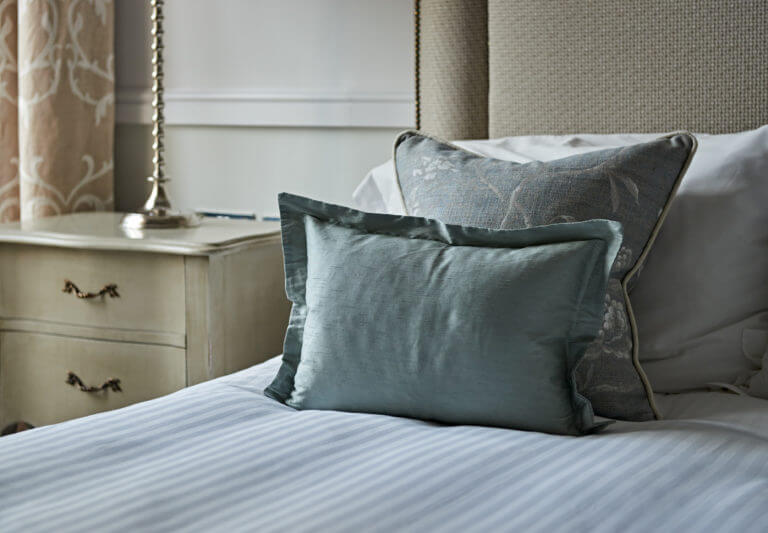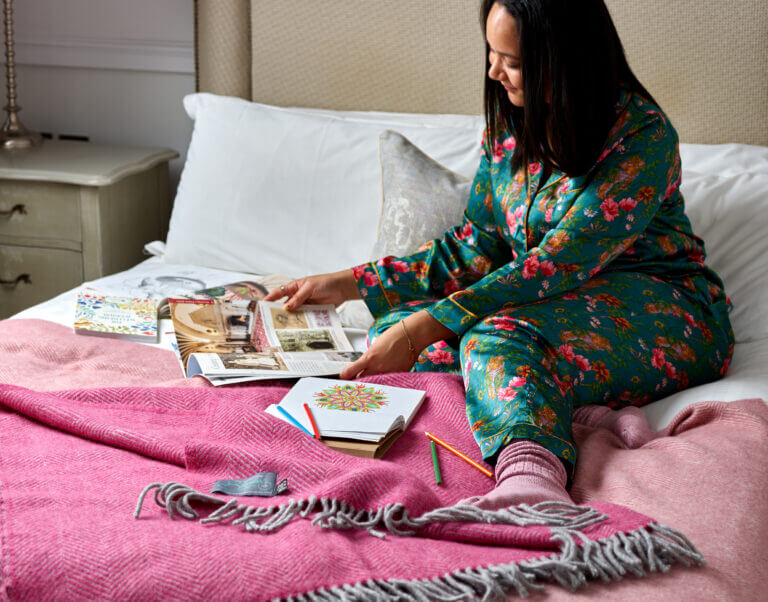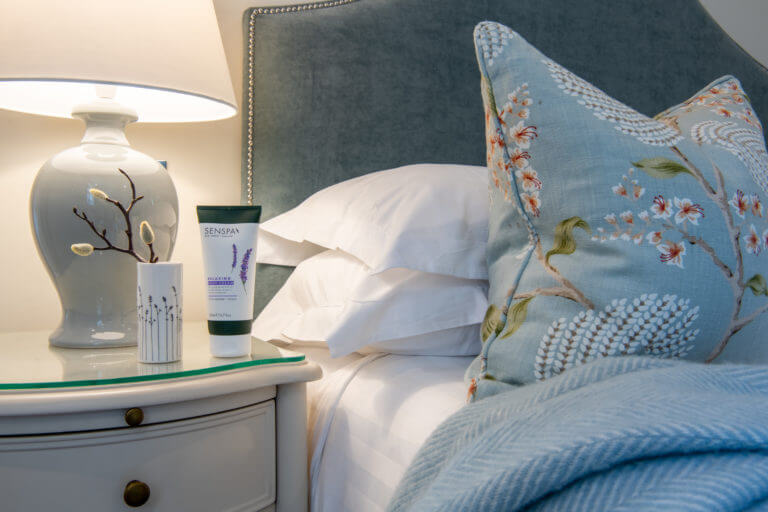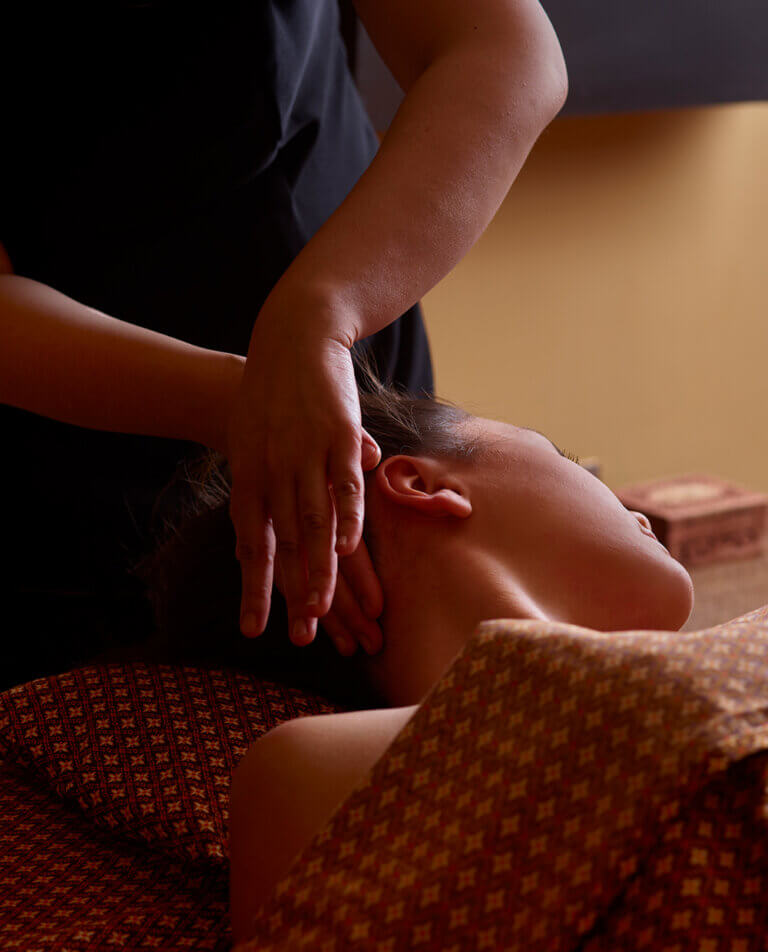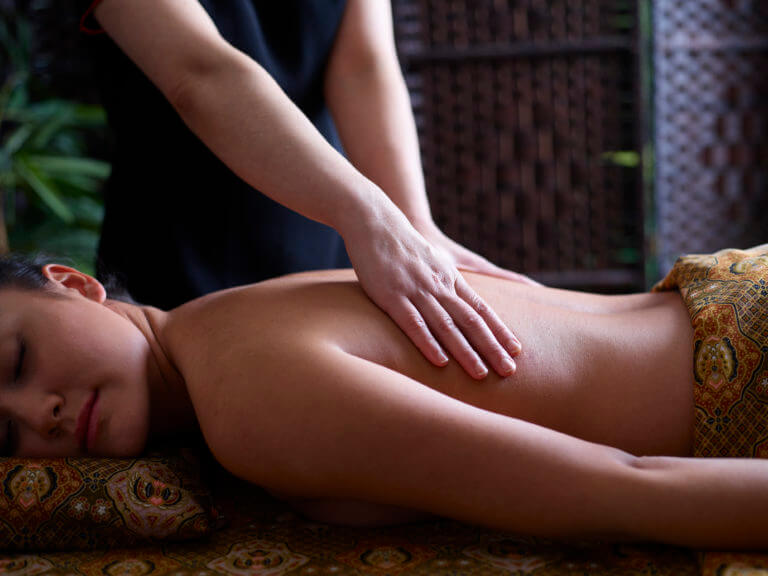Top Reasons Why You’re Not Sleeping Well
Struggling to catch some Zs? You're not alone! In this blog, we'll dive into the top reasons why your sleep is playing hard to get. From late-night scrolling to restless thoughts, we'll uncover the culprits keeping you from dreamland. Let's uncover the secrets to a peaceful slumber together this #sleeptember!
1. You aren’t getting enough natural light
We know lunchtime is the perfect opportunity to catch up with the latest Insta-stories, but it’s time to put the phone away and swap that blue light for some natural sunlight. Our circadian rhythm is our natural internal clock, so exposing yourself to as much natural light during the day and as little as possible at night keeps it healthy and will give you some natural energy, which will help you to sleep longer. So, try to head outside for some natural light as often as you can during the day to keep that circadian rhythm in check for a great night’s sleep.
2. Your sleep schedule is inconsistent
If the last time you had a bedtime was aged 6, it’s time to get back to it. There is a reason why we send children to bed at a certain time and as an adult it’s just as important to avoid erratic sleep because it can throw you off balance. Try to follow a regular sleep and wake routine (as much as possible) and see if you experience a great night’s sleep.
Weekends are usually the downfall to routines, so try to be as consistent as possible. If you’re getting an average of 8 hours every night consistently during the week, you should feel less inclined to throw the alarm clock out of the window on Saturday morning. The best way to set your new schedule in motion is by making small 15-minute adjustments until you reach your proposed bedtime and wake-up time.
3. Your health & wellbeing is slipping
If you haven’t been focusing on your health and wellbeing goals, your sleep could suffer as a side effect. We’ve put together a varied list of our favourite podcasts which you might find helpful to get you back on track. With a soothed and calm mind, you’ll be setting yourself up for a great night’s sleep. Plus, listening to a podcast before bed, eyes closed and lights off or low, is much better than an hour of doom-scrolling.
4. You aren’t regulating your breathing
With many of us suffering from burnout at work, money worries, and an over-active mind at night, it can be difficult to fully relax at bedtime. Lina Lotto, SenSpa’s Spa Director has a passion for holistic health and wellbeing and swears by this relaxing and meditative breathing exercise called the ‘478 method’ to get you to sleep quickly:
“When you’re comfortable and relaxed, breathe in through your nose for 4 counts, hold the breath for 7 counts and then breathe out steadily through the mouth for 8. And repeat. It’s a wonderful way to distract the mind from the day and fall to sleep quickly but gently.”
5. You consume too much caffeine after midday or alcohol during the week
Did you know too much caffeine can affect your sleep? Especially when consumed after midday. Try to make midday your caffeine cut-off and although it may take up to a week to get used to the change, see how it feels to go to sleep without that afternoon buzz still keeping you up. Alcohol should also be avoided – it reduces your REM (rapid eye movement) sleep which is believed to be a restorative period of sleep, which when missed can lead to feelings of grogginess and a lack of focus. Alcohol also disrupts your circadian rhythm, possibly due to confusing your body’s normal hormone production, so you may find you wake up in the middle of the night feeling awake
Keep things interesting; stay hydrated and drink more water, buy decaf coffee and tea supplies for home and work. At our SenSpa boutique, we sell a wonderful selection of DIRTEA functional mushroom blends that make a great caffeine-free alternative when you need a pick-me-up in the afternoon. The Lion’s Mane blend is known to power up the brain; Chaga can increase energy through stress regulation; Reishi promotes relaxation and balances cortisol levels for a more centred state of being.
6. Your sleep environment is off
The setting of a great night’s sleep should be cool, dark, quiet and disconnected! Before the smartphone was permanently by our side, we used to have books on the bedside table. So, it’s time to travel back in time and go old school with an alarm clock (if that’s your reason for keeping the phone next to you) and put all phones, tablets and electricals in another room.
Our circadian rhythm requires light and dark at the right times of day in order to stay healthy, so even small devices that may light up in the night can disturb the brain and promote wakefulness at the wrong times.
A break at our New Forest hotel is the perfect place to trial a screen-free evening. When you book our Unplugged: Digital Detox Spa Break, you’ll receive a phone amnesty box, so you can put your phone away safely and enjoy a tech-free stay, in a cosy sleep environment, with mindful walking trails and relaxing spa sessions on your doorstep.
7. You’re retaining too much tension
After a long day at work, it can be so easy to take up residence on the sofa and be glued to the TV for the rest of the evening. But, if you’re feeling stressed, this can simply lead to up a build-up of tension, which can later make it difficult to sleep well.
Why not take a little time out of your evening for a rejuvenating spa session, a treatment, or a relaxing local class like our Sen Sound Sessions or yoga. These are all great ways to release tension, quiet the mind, improve circulation and flexibility and promote deeper, more restful sleep. Hydrotherapy pools help to relax muscles, ease tension, increase circulation and improve joint mobility. Spa treatments, like the Anti-Stress Massage, are deeply relaxing and use Swedish massage techniques to relieve muscular tension. And our Sen Sound Sessions offer an immersive journey into relaxation, escapism and playful exploration through ambient sounds and flotation on water.
8. Your mind is too busy
Perfectly paired with yoga, meditation doesn’t have to take hours but with regular practice it can become a way of soothing a busy mind, easing anxiety and could help you to feel more in control, especially if your to-do list is one of the things that invades your dreams.
You can meditate anywhere and anytime; one suggestion is when you are lying comfortably in bed, try counting backwards from 100, whenever your mind wanders, bring it back and start again. Or create a mantra that you can connect to, perhaps “I am calm and relaxed”, “Breathe in peace, exhale stress” or “I am grateful for…” and then repeat it to yourself until you fall asleep.
You could even combine your meditation with a soothing bath, that way you can escape the phone, television or the children and enjoy some well-deserved you-time – a great sleep guarantee.
9. You haven’t tried these key supplements
If you feel like you’ve tried all of the above, for a great night’s sleep, you might want to try:
Chamomile tea – Chamomile is a herb that’s been used for many years to reduce inflammation and relax muscles and many find it helps them achieve a deep and great night’s sleep.
Magnesium – Magnesium is a natural mineral that is hugely important for brain function and heart health and is believed to have a calming effect on the nervous system. You can try supplements in powder, oil, tablet or capsule form but you’ll be delighted to learn that dark chocolate contains magnesium too.
Lavender – Buy in an oil form and dab on your pressure points, keep a small bag of dried lavender under your pillow or fresh lavender around the house for DIY aromatherapy and improved sleep quality.
Melatonin – Melatonin is a hormone that is naturally produced by the body. Increasing levels can be helpful to promote sleep and is especially effective for jet lag or readjusting the sleep-wake cycles. Melatonin can be found as liquid or in tablet form.
10. You need a sleep break
Ok, we might be slightly biased with this one, but our Ultimate Sen Sleep Spa Break could be the answer to your sleepless nights!
This one-night break offers you the chance to retreat to our relaxing New Forest spa hotel and take advantage of the spa facilities that work in perfect harmony to promote deeper, longer-lasting sleep, enjoy a soothing Ayurvedic Head Massage to clear the mind and relieve stress, and completely unwind in the evening with your choice of sumptuous bedroom, where an exclusive Ultimate Sleep Gift Box will be waiting for you – featuring a wheat eye pillow and a range of SenSpa products to mellow both the body and mind for the dreamiest slumber.

